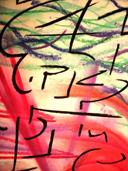Islamitische geneeskunde
Islamitische geneeskunde is gebaseerd op de Koran. In de Koran is geschreven dat de mens in al zijn gelaagdheid toch een geheel is en dit doet begrijpen dat voor de de Islamitische geneeskunde ook wel de term holistisch gehanteerd wordt. Holistisch is afgeleid van het woord holos, eenheid. Natuurlijk spelen kruiden een grote rol in deze vorm van geneeskunde en sinds enkele jaren wordt er meer onderzoek gedaan naar de waarde van die kruiden.12184603Er zijn kruiden en mineralen te vinden voor de behandeling van uiteenlopende aandoeningen. [1] [2]
Elementen van de islamitische geneeskunde worden tegenwoordig ook duidelijk serieus genomen. [3] [4] [5][6] En ook meer ethische questies worden besproken, op basis van de islamitisch medische invalshoek. [7][8][9]
Beoordeling

In een recent artikel in de British Medical Journal wordt een mooi overzicht gegeven hoe de Islam de westerse geneeskunde beinvloedde.
Sites
- Nederlandse tekst over Islamitische geneeskunde
- Nederlandse tekst van Skepsis
- Engelse teksten en links over Islamitische geneeskunde
- Introduction to Islamic Medicine
- Islam and Medicine
- Islamic Philosophy of Medicine
- Islamic view of well-being of Man
- Islam and modern medicine
- Islam & Medicine
- Natural Therapeutics of Medicine in Islam
- Alternative Medicine Is An Adjunce To The Convential Machine
- Alternative therapies
- The herb treatment in Muslim cultural
- Traditional Medicine
- Islamic Medical Association of North America (IMA) Web page
[1] Said O, Saad B, Fulder S, Khalil K, Kassis E. | Weight loss in animals and humans treated with "weighlevel", a combination of four medicinal plants used in traditional arabic and islamic medicine. | Evid Based Complement Alternat Med. | 2011;2011:874538. doi: 10.1093/ecam/nen067. Epub 2011 Jun 16.
[2] Younos C, Martin J, Fleurentin J, Mazars G, Notter D, Mortier F, Pelt JM. | Repertory, therapeutic indications, chemical analysis and cultural background of mineral drugs of Afghanistan. | J Ethnopharmacol. | 1991 May-Jun;33(1-2):169-78.
[3] Turgut O, Manduz S, Tandogan I. | Avicenna: messages from a great pioneer of ancient medicine for modern cardiology. | Int J Cardiol. | 2010 Nov 19;145(2):222. doi: 10.1016/j.ijcard.2009.05.015. Epub 2009 May 28.
[4] Azizi MH, Raees-Jalali GA, Noroozi H. | A brief history of the publication of Biomedical Journals in Iran between 1901 and 1979. | Arch Iran Med. | 2009 Mar;12(2):204-11.
[5] Azaizeh H, Saad B, Cooper E, Said O. | Traditional Arabic and Islamic Medicine, a Re-emerging Health Aid. | Evid Based Complement Alternat Med. | 2010 Dec;7(4):419-24. doi: 10.1093/ecam/nen039. Epub 2008 Jun 13.
[6] Asefzadeh S, Sameefar F. | Traditional healers in the Qazvin region of the Islamic Republic of Iran: a qualitative study. | East Mediterr Health J. | 2001 May;7(3):544-50.
[7] Aramesh K. | Iran's experience with surrogate motherhood: an Islamic view and ethical concerns. | J Med Ethics. | 2009 May;35(5):320-2. doi: 10.1136/jme.2008.027763.
[8] Larijani B, Zahedi F, Malek-Afzali H. | Medical ethics in the Islamic Republic of Iran. | East Mediterr Health J. | 2005 Sep-Nov;11(5-6):1061-72.
[9] Aksoy S, Elmai A. | The core concepts of the 'four principles' of bioethics as found in Islamic tradition. | Med Law. | 2002;21(2):211-24.

